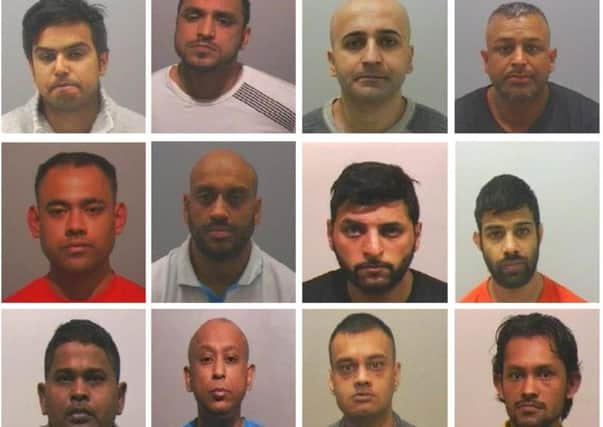Chris Marshall: Paying a police informant should be a last resort strategy


Northumbria Police launched Operation Sanctuary in late 2013 to investigate claims of sexual abuse against young women and children.
Almost four years on, it has made more than 400 arrests and identified nearly 300 victims.
Advertisement
Hide AdAdvertisement
Hide AdAll this painstaking police work led to last week’s convictions, which saw the culmination of four trials during which 20 young women gave evidence covering a period from 2011 to 2014.
Yet the convictions were almost overshadowed by a detail that emerged in court – police paid a child rapist £10,000 over 21 months to act as an informant.
Known only as XY, the man claimed he was asked to take vulnerable girls to sex parties, something Northumbria Police categorically denied.
The force said the informant’s role was to find out addresses and cars being used and that he was never put in a position where he could re-offend.
Yet the man’s role has again raised questions about the police use of informants.
According to figures published earlier this month, Police Scotland has 759 informants or “covert human intelligence sources”.
There shouldn’t be anything too controversial about the police use of informants as useful sources of information who can shed important light on ongoing investigations.
The issue is complicated by the way forces across the UK have employed undercover officers in the past, using them to infiltrate not drug gangs and paedophile rings but campaign groups and environmental activists.
Advertisement
Hide AdAdvertisement
Hide AdBut that should not obscure the fact that informants can turn up vital information in major investigations.
The issue becomes more problematic when money is involved. The thought that someone may benefit financially from a crime they have committed at some point in the past is one most of us will struggle with.
Commenting on Operation Sanctuary, the NSPCC said paying a paedophile for information had “crossed the line”. The children’s charity said the use of a sex offender had potentially exposed vulnerable girls to greater harm.
And it said the unreliability of such an informant could have “jeopardised” the trial.
Jim Gamble, a former head of the Child Exploitation and Online Protection Centre (Ceop), also questioned the decision.
It’s unclear just how useful the informant was in this particular case, although senior officers maintain the details he provided them with were a crucial “jump-off point” for their investigation. However, the fact the man made allegations refuted by the police gives credence to the view such individuals can be unreliable and could threaten the progression of a case through court.
The moral justification for paying an informant is difficult enough when the offender is guilty of a low-level crime, it becomes almost impossible when the person has been convicted of something as appalling as the rape of a child.
That such an action was considered by Northumbria Police is a reflection on how serious this particular case was.
While it’s a decision unlikely to have been taken lightly, it’s not one which should set a precedent.